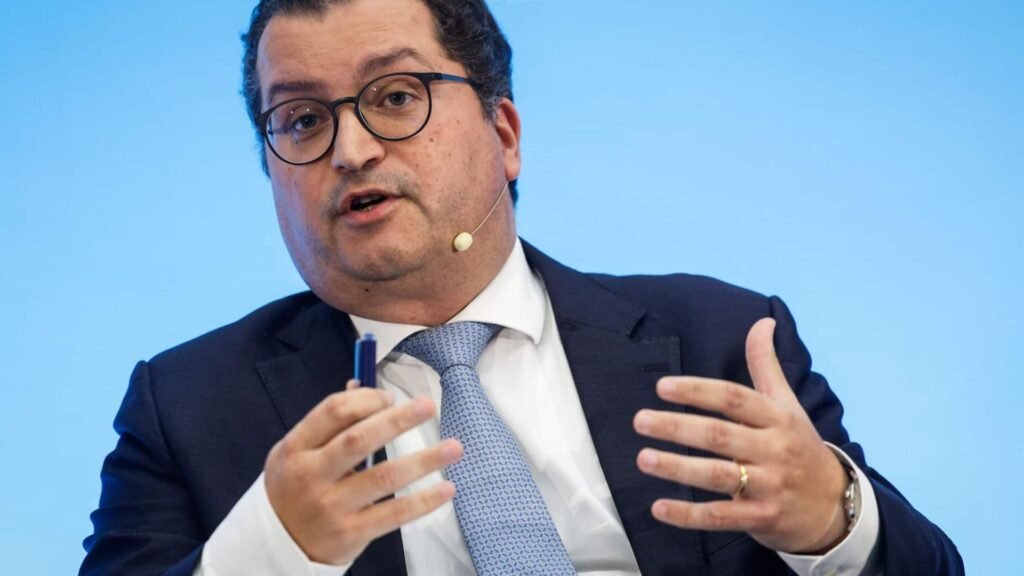The European Commission has asked Portugal to adjust its 2025 State Budget. Its main concern is the Petroleum and Energy Products Tax (ISP). The EU believes Portugal’s current budget plan does not fully follow its rules.
Portugal’s Finance Minister Joaquim Miranda Sarmento disagrees with the EU. He says the government will not follow Brussels’ recommendation. Sarmento argues that increasing taxes on fuel will harm citizens already struggling with high prices.
This dispute highlights the challenge of balancing EU financial rules with Portugal’s domestic needs.
Read More About: Video Survelliance From Algarve CCTV Is Helpful To Solve Crime
Brussels Wants Portugal To Increase Fuel Taxes

The EU monitors the budgets of member countries every year. This is done to ensure economic stability across the region.
An official source told the State news agency:
The Commission’s opinion on Portugal’s draft budget plan for 2025 is that on the whole it is not fully in line with the Council’s budgetary guidelines. We invite the Portuguese authorities to take additional and necessary measures to reduce emergency energy support measures fully
For 2025, the EU has criticized Portugal for keeping emergency energy support measures. These measures include reducing the ISP and pausing the carbon tax. They were introduced during the energy crisis caused by the war in Ukraine.
EU Vice-President Valdis Dombrovskis said such support was helpful during the crisis. But now, he says that these measures should end.
He stated:
We recommend that member states withdraw emergency energy support measures
Brussels believes that keeping these measures can harm the energy market. It also says that they put pressure on public finances.
He added:
As far as next year’s budget plan is concerned, Portugal is projecting a growth in net expenditure, but that’s not a problem, the issue is that we have been recommending and the Council has been endorsing this recommendation – that member states should progressively withdraw the emergency energy support measures that were introduced following Russia’s aggression in Ukraine and the increases in energy prices
Portugal Current Fuel Taxes
The Portuguese government has a different view. Finance Minister Sarmento has said the tax benefits will remain in place for now.
The government fears that raising fuel taxes will hurt the public. Fuel prices in Portugal are already among the highest in Europe. For example, they are significantly higher than in Spain.
Higher taxes can also harm the economy. They can increase costs for businesses especially in transportation and production.
Emergency measures still play an important role according to Lisbon. Reports show these measures will cost 0.5% of GDP in 2024 and 0.1% in 2025. The EU sees these numbers as high but Portugal considers them necessary.
This debate comes at a challenging time for Portugal. It is also dealing with global issues like rising prices and the need for cleaner energy. The economy of the country is still getting better after the epidemic.
When Portugal submitted its budget to the EU it promised to be financially responsible. The government said it would keep a budget surplus and reduce public debt.
Lisbon also wants to protect its citizens from financial struggles. The government believes that supporting vulnerable groups can go hand-in-hand with reducing debt.
The EU’s position reflects its focus on long-term financial health. It wants member states to cut spending on temporary measures and invest in areas like renewable energy.
Public And Political Reactions To EU Demamd
The idea of higher fuel taxes is unpopular with Portuguese citizens. Many already feel burdened by high costs. Increasing taxes will lead to public protests.
The government is aware of this risk. Finance Minister Sarmento knows that raising taxes now could harm public trust.
The issue is also creating political tension. The government is being criticized by opposition parties for how it has handled the budget. They accuse it of failing to balance EU rules with domestic priorities.
Tensions are running high with the final vote on the state budget just days away.
Possible Solutions
Both Portugal and the EU share common goals. They want to ensure economic stability and protect the public.
One possible solution can be to phase out energy support measures slowly. This will give people and businesses time to adjust. It would also show Brussels that Portugal is willing to follow EU rules.
Another approach could involve investing more in renewable energy. This would help Portugal meet its climate goals and reduce its reliance on fossil fuels. It could also improve relations with the EU.
The disagreement between Portugal and the EU highlights a tough balancing act. On one side is the EU’s push for fiscal discipline. On the other side is Portugal’s need to protect its citizens from high living costs.
As the budget vote approaches, the government faces a difficult decision. It must find a way to meet EU expectations without harming the public.
